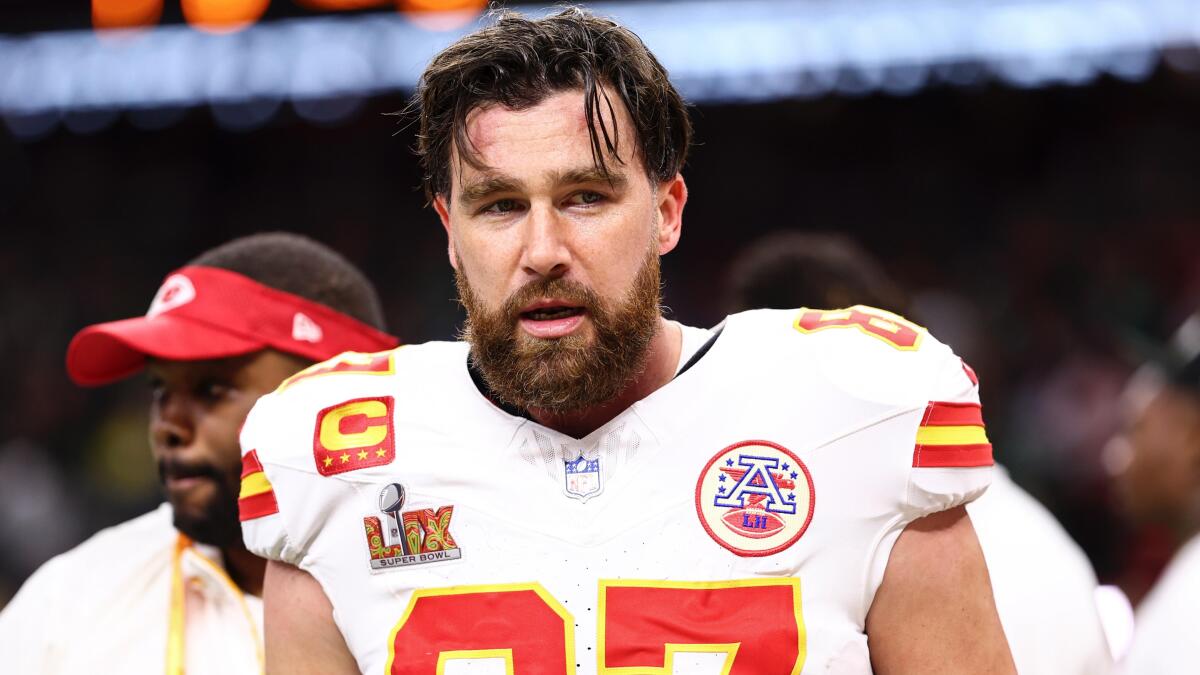Travis Kelce’s Fiery Defense of Shedeur Sanders: A Microcosm of NFL Culture
Introduction: When a Veteran Speaks
The NFL isn’t just about touchdowns and trophies—it’s a high-stakes ecosystem where reputations are built and broken behind closed doors. When Travis Kelce, the Kansas City Chiefs’ All-Pro tight end, unleashed a passionate defense of rookie quarterback Shedeur Sanders on his *New Heights* podcast, he did more than just stick up for a young player. He pulled back the curtain on the league’s unspoken dynamics: the power of anonymous criticism, the brutal realities of the draft process, and the responsibility veterans have to call out unfairness.
This wasn’t just a rant; it was a spotlight on systemic issues. Kelce’s words resonated because they cut to the core of what it means to navigate the NFL—not just as a player, but as a person.
—
The Backstory: Why Kelce Spoke Out
Shedeur Sanders, son of Hall of Famer Deion Sanders, entered the NFL draft with a polarizing profile. Once projected as a potential first-round pick, he tumbled to the fifth round, where the Cleveland Browns finally scooped him up. The reasons for his slide were murky, but whispers from unnamed scouts and coaches painted him as flawed—too raw, too entitled, or simply not “NFL-ready.”
Kelce, never one to mince words, took aim at these shadowy critiques. His frustration wasn’t just about Sanders; it was about the culture that allows faceless evaluators to shape careers without accountability. *”If you’re gonna say something, put your name on it,”* Kelce argued, challenging the league’s reliance on anonymity as a shield for harsh, often unsubstantiated judgments.
—
The Problem with Anonymous Critics
Anonymous sources are a double-edged sword in sports journalism. They provide insider access but often at the cost of credibility. In the NFL, where careers hinge on perception, a single unnamed scout’s critique can alter a player’s trajectory overnight. Kelce’s rant exposed three key flaws in this system:
Kelce’s point was clear: If you’re going to critique a player’s livelihood, own your words.
—
The Draft’s Psychological Gauntlet
The NFL draft isn’t just a selection process—it’s a public dissection. Players endure months of scrutiny, from combine drills to private interviews, all while their futures hang in the balance. For Sanders, the draft slide wasn’t just a blow to his ego; it cost him millions in rookie contract value and placed him under a harsher microscope as a “project” rather than a blue-chip prospect.
Kelce, who was a third-round pick himself in 2013, understands this pressure intimately. His defense of Sanders was a reminder that behind every draft ranking is a human being facing immense stress. The NFL’s “sink-or-swim” culture often overlooks this, but Kelce’s outburst forced the conversation: *How much weight should we give to anonymous evaluations, and at what cost to players’ mental health?*
—
The Bigger Picture: Kelce’s Leadership Moment
Kelce’s rant wasn’t just about Sanders—it was about the NFL’s moral compass. As a veteran, Kelce has a platform, and he used it to advocate for two principles:
This wasn’t empty rhetoric. Kelce’s words carried weight because he’s a Super Bowl champion, a future Hall of Famer, and a voice players respect. By calling out the league’s opaque criticism, he challenged the NFL to do better—not just for Sanders, but for every player who’s been unfairly labeled by faceless voices.
—
What This Means for Shedeur Sanders
For Sanders, Kelce’s support is a lifeline. Rookies face immense pressure to prove themselves, and a high-profile endorsement from a player of Kelce’s stature can shift narratives. Kelce didn’t just defend Sanders; he reframed the conversation around his potential, emphasizing his resilience and talent rather than anonymous doubts.
This could be pivotal for Sanders’ confidence and development. In a league where perception often dictates opportunity, having a star like Kelce in his corner is invaluable.
—
Conclusion: A Rallying Cry for Change
Travis Kelce’s rant was more than a viral moment—it was a challenge to the NFL’s status quo. By defending Shedeur Sanders, he highlighted the league’s unhealthy reliance on anonymous criticism and the need for greater accountability in how players are judged.
The NFL thrives on competition, but fairness shouldn’t be sacrificed for drama. Kelce’s message was clear: *If the league wants to uphold its integrity, it must demand the same from those who shape its narratives.* For young players like Sanders, and for the future of the sport itself, that’s a fight worth having.
Kelce didn’t just speak up for Sanders—he spoke up for every player who’s ever been unfairly scrutinized. And in doing so, he reminded us all that football isn’t just a game of physical skill, but of character.











